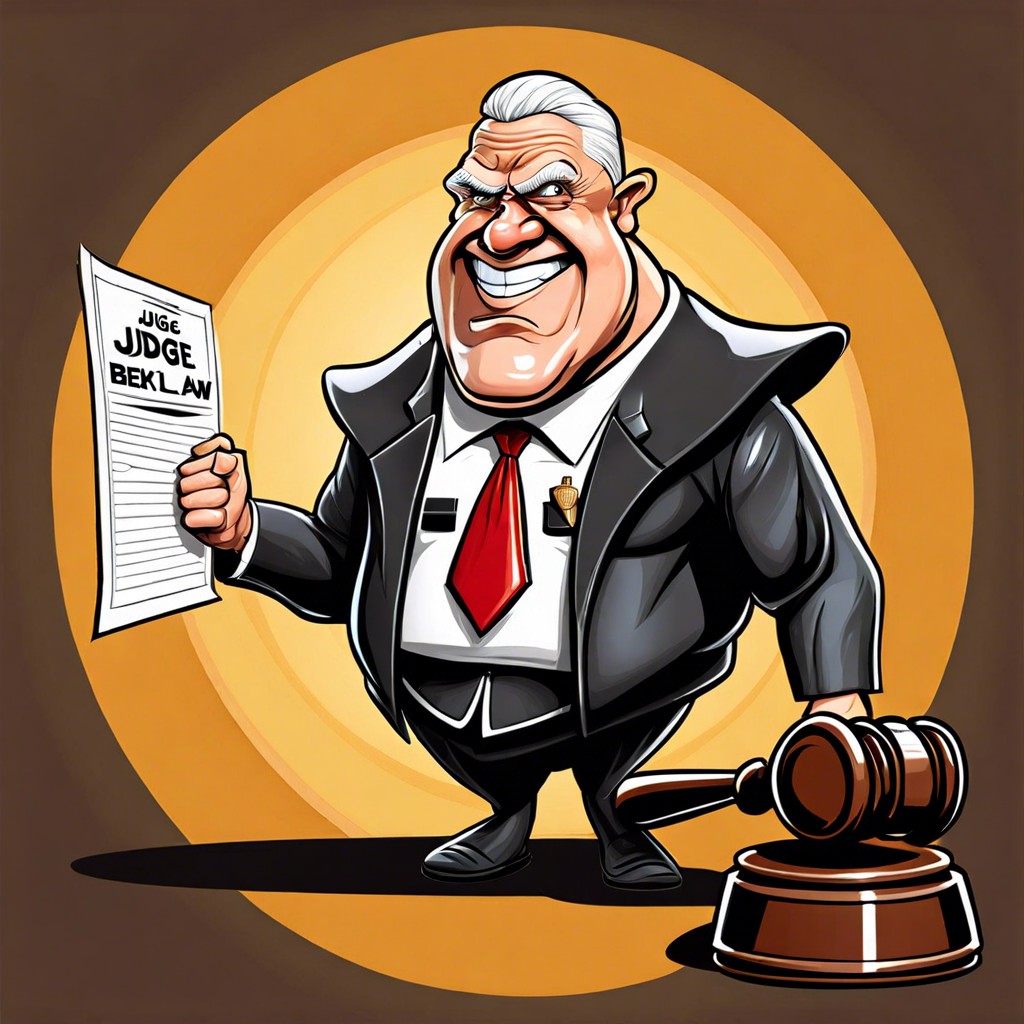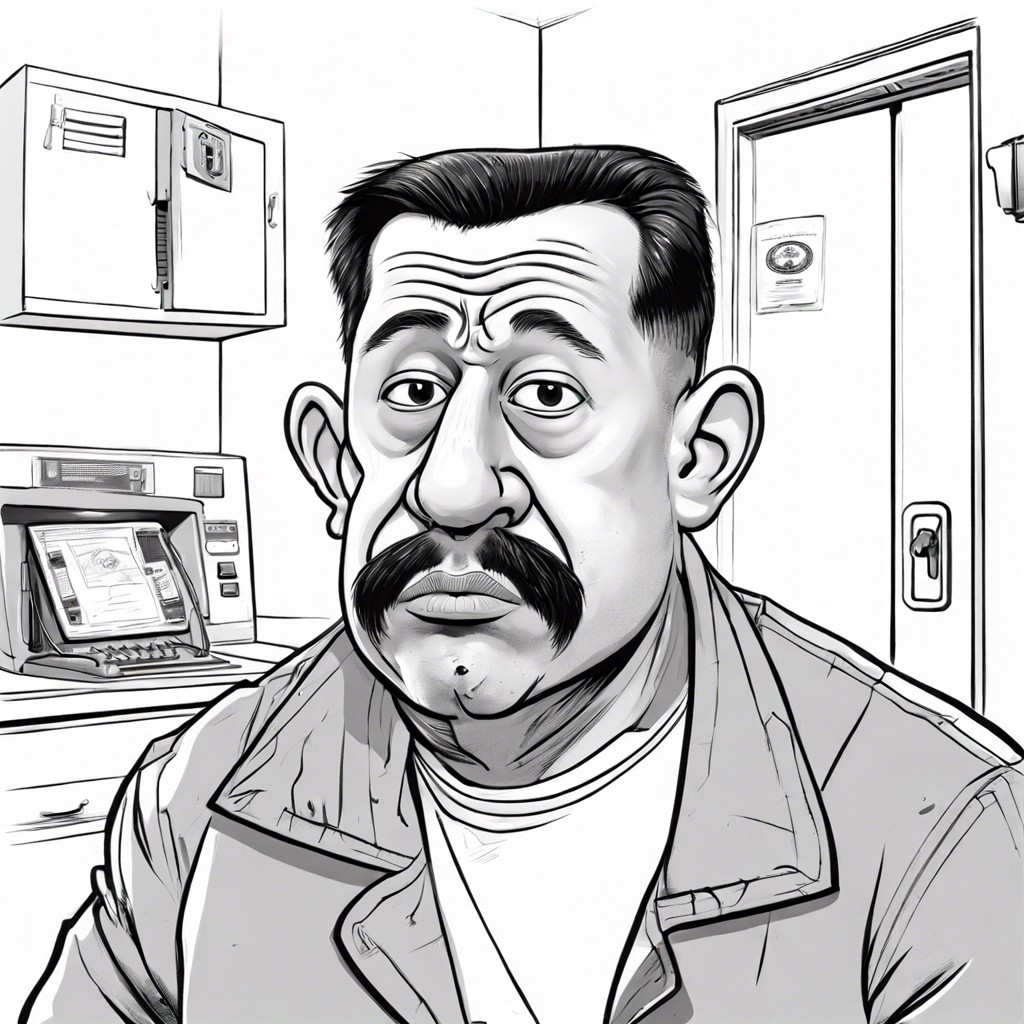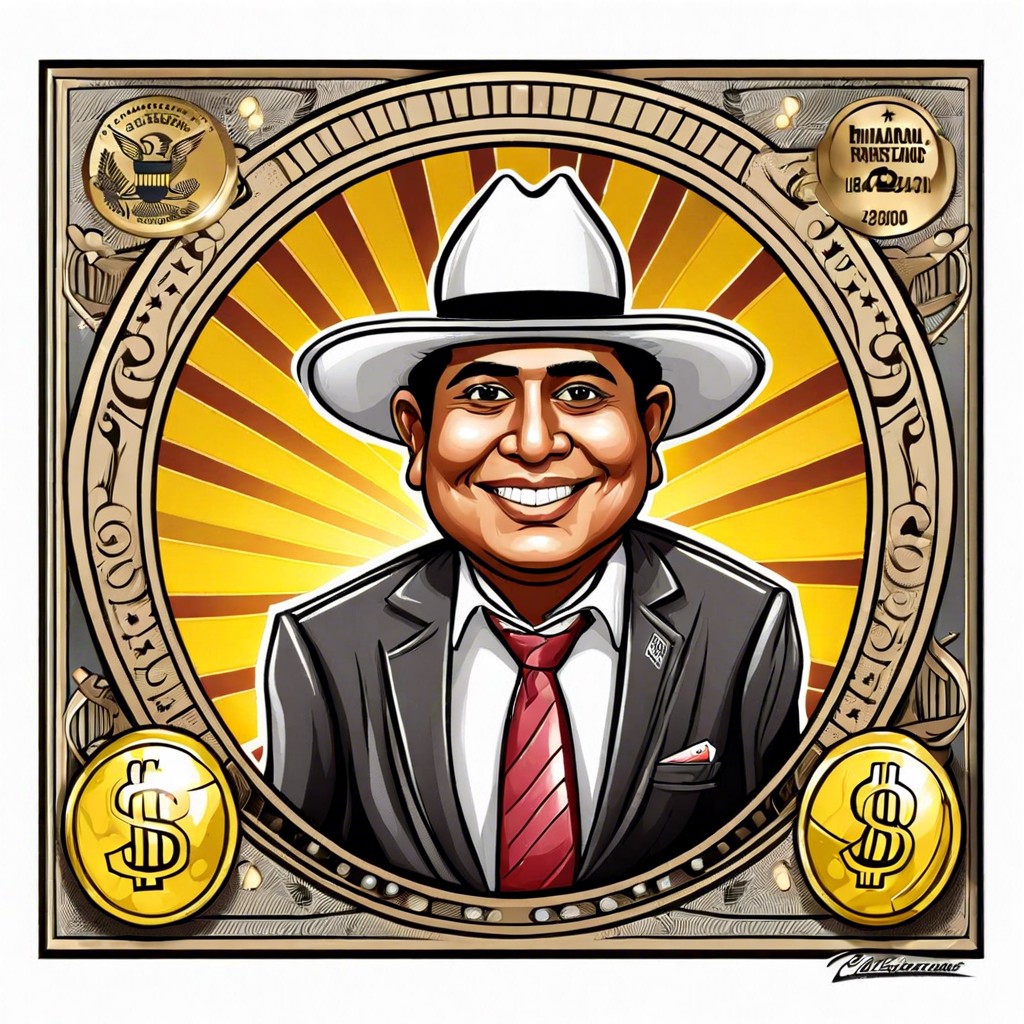Find out what happens when a judge decides to ignore the law, and learn the implications of such actions on the justice system.
Ever wonder what happens when a judge plays a game of “I make the rules”? Imagine the chaos! Ignoring the laws isn’t just a faux pas, it’s a legal earthquake. What’s at stake? The immediate fallout is one thing, but the ripple effects on public trust, the judicial system, and the judge’s career are catastrophic. Fret not, we’ll unravel every twist—from urgent consequences and ethical quandaries to historic eyebrow-raisers. Ready for a thrilling courtroom drama without getting called to jury duty? Stick around.
Key takeaways:
- Judge’s decision may be overturned by higher courts.
- Parties seek appeals to challenge rogue verdicts.
- Judge faces disciplinary actions for misconduct.
- Judicial misconduct can lead to mistrials or retrials.
- Citizens lose trust and fairness in the legal system.
Immediate Legal Ramifications

Think of a judge ignoring the law like a chef ignoring a recipe—chaos in the kitchen of justice! Immediate consequences can be summed up quickly:
First, the judge’s decision may be overturned. Higher courts don’t appreciate rogue decisions and have the authority to nullify them.
Second, the parties involved will, without doubt, seek an appeal. No one likes losing to a rogue verdict; they’ll rush to a higher court faster than kids to an ice cream truck.
Third, the judge faces potential disciplinary actions. Committees look at this like parents finding you raided the cookie jar before dinner—there will be consequences.
Lastly, judicial misconduct can lead to mistrials or retrials. Nobody enjoys a case of legal déjà vu.
Impact On Public Trust and the Judicial System
When judges sidestep the law, it’s like the referee in a soccer game suddenly deciding goals are out of style. Chaos reigns. People start to question if the game is even fair anymore.
First off, citizens rely on the judicial system to be the ultimate umpire, consistently unbiased. If this trust wavers, folks might start to think twice about the fairness of the rulings. Imagine a world where court decisions depend more on the judge’s mood than on statutes. Scary, right?
Then, there’s the ripple effect. When local courts gain a reputation for unpredictability, businesses could start keeping their distance. After all, who wants to risk a quirky verdict when millions are on the line?
Lastly, respect for the law trickles down from the top. If judges aren’t playing by the rules, why should anyone else? It could lead to a societal shrug at legal obligations, turning “Law and Order” re-runs into nostalgic fiction.
Role of Higher Courts and Appeals
When a judge goes rogue and ignores the law, higher courts enter the scene like the cleanup crew after a wild party. Here’s how they restore order:
They review decisions. Higher courts scrutinize the controversial ruling to determine if it was influenced by disregarded laws.
They correct errors. Through the appeals process, higher courts have the authority to reverse or modify the original decision.
They uphold justice. By making sure lower courts follow the rulebook, they maintain fairness across the judicial system.
They set examples. When a higher court overturns a flawed decision, it sends a warning to other judges about sticking to the law.
In essence, higher courts act as both the guardians of legal integrity and the disciplinarians of judicial misconduct.
Professional and Ethical Consequences for the Judge
Let’s dive into the potential fallout for a judge who chooses to play fast and loose with the law.
– Loss of Credibility: If you thought middle school was tough, imagine being a judge who’s lost the trust of their peers. Legal communities are tight-knit and a judge who disregards the law can quickly become persona non grata.
– Disciplinary Action: The judicial oversight bodies are not just there for show. Disbarment, suspension, or other disciplinary actions can ensue. Suddenly, that judicial robe might start feeling less like a cape and more like a straitjacket.
– Career Limbo: Remember when you couldn’t get a date after that haircut debacle? Well, a tarnished reputation can make future career prospects pretty bleak. Other judicial roles and even legal firms might think twice before welcoming a rogue judge back into the fold.
– Personal Repercussions: It’s not all about professional impact. Ethical breaches could strain personal relationships and community standing. People talk, and gossip doesn’t need a gavel to pass judgment.
Ignoring the law is not just a professional misstep; it’s an ethical sinkhole.
Historical Examples and Precedents
Remember the Judge Roy Bean, “The Law West of the Pecos”? The man practically turned his saloon into a courtroom and delivered justice with a side of whiskey. In more recent history, we have the famous case of Judge Walter Nixon who was impeached in 1989 for lying to a grand jury. He chose his own rulebook over the law’s, and, well, Congress wasn’t impressed.
Let’s not forget Judge Halsted Ritter from the 1930s, nailed for showing favoritism and questionable ethics during trials. Yeah, favoritism in court – colossal no-no.
These cases aren’t outliers. They serve as cautionary tales. Judges ignoring the law don’t just face disapproval – they endure serious repercussions. From impeachment to jail time, the gavel of justice eventually swings back.




